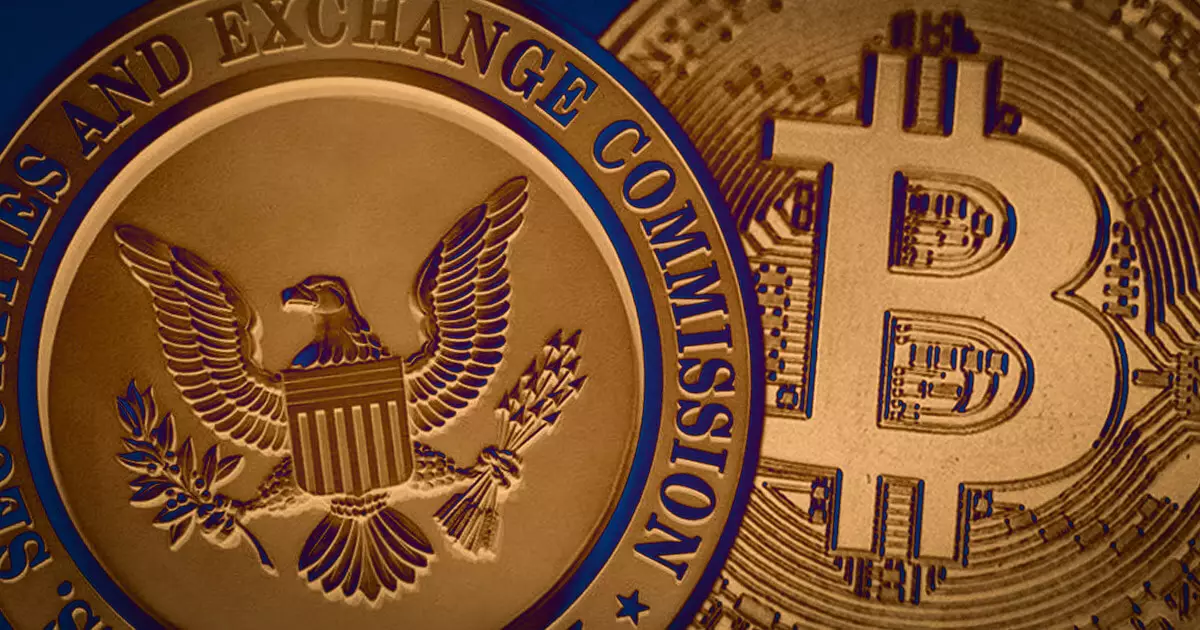The Securities and Exchange Commission (SEC) has been hesitant in approving a Bitcoin spot exchange-traded fund (ETF) due to significant regulatory concerns. This article explores the reasons behind the SEC’s reluctance, including the prevention of fraud and investor protection. Moreover, the article delves into the impact of partisanship within the SEC, the potential influence of the upcoming presidential election, and other regulatory factors affecting the approval process.
The Shift Towards Partisanship
Former SEC attorney, John Reed Stark, highlights a noteworthy development within the SEC’s handling of cryptocurrencies. In 2017, there was a bipartisan consensus against cryptocurrencies. However, Stark points out that the issue of crypto regulation has now transformed into a partisan divide within the SEC. Formerly appointed SEC Chair Jay Clayton initiated a crypto crackdown and implemented sweeping regulatory actions against cryptocurrencies, primarily driven by his staunch criticism. This partisan approach has significantly influenced the SEC’s stance on cryptocurrencies, causing it to adopt a more stringent regulatory approach.
Stark suggests that a crucial factor to consider is the upcoming presidential election in 2024 and its potential impact on the regulatory landscape concerning cryptocurrencies. If a Republican candidate were to be elected, Stark predicts a significant reduction in the SEC’s crypto-enforcement efforts. This change in direction could lead to a more favorable environment for cryptocurrencies, potentially making the SEC more receptive to approving a Bitcoin spot ETF. Additionally, other crypto-friendly regulatory actions might be more likely to occur under a Republican-led SEC.
Potential Leadership Change
Furthermore, Stark emphasizes that the SEC, as an independent federal agency, undergoes leadership changes following presidential elections. In the event of a Republican victory, Hester Peirce, known as the “crypto-mom” for her supportive stance on cryptocurrencies, could become the acting Chair. This transition in leadership, with the possibility of Gensler’s resignation, could have a substantial impact on the SEC’s approach to cryptocurrencies. Peirce’s dissenting views on most crypto-related SEC actions may result in a significant shift in the SEC’s perspective.
Stark also references a letter from Better Markets sent to the SEC, outlining several issues with the proposed rule changes necessary for the listing and trading of spot Bitcoin ETFs. Among these concerns is the potential for manipulation in the Bitcoin market, particularly allegations of “wash trading” that create false volumes. Better Markets asserts that the proposed surveillance-sharing agreements with platforms like Coinbase are inadequate in detecting manipulation, especially since Coinbase only represents 5% of global Bitcoin trading volume. The concentration of Bitcoin ownership is another risk highlighted by Better Markets, with 50 miners controlling 50% of the mining capacity and the top 10,000 Bitcoin wallets owning 27% of all Bitcoins.
Ultimately, Stark argues that the SEC’s decisions on Bitcoin ETFs and related regulatory issues will be influenced by multiple factors. Internal politics within the SEC, the broader political landscape, and ongoing concerns about market manipulation and investor protection all play a role in shaping the regulatory approach. Given the current political climate and the SEC’s enforcement efforts, Stark does not believe that a Bitcoin spot ETF will be approved without significant changes to the regulatory landscape.
The approval of a Bitcoin spot ETF by the SEC faces substantial challenges. Regulatory concerns, including fraud prevention and investor protection, continue to hinder the SEC’s decision-making. Partisanship within the SEC, potential changes in leadership following the 2024 presidential election, and critical issues highlighted by organizations like Better Markets further complicate the path to approval. The SEC’s stance on cryptocurrencies and the regulatory landscape must undergo significant transformations for a Bitcoin spot ETF to receive approval.


Leave a Reply